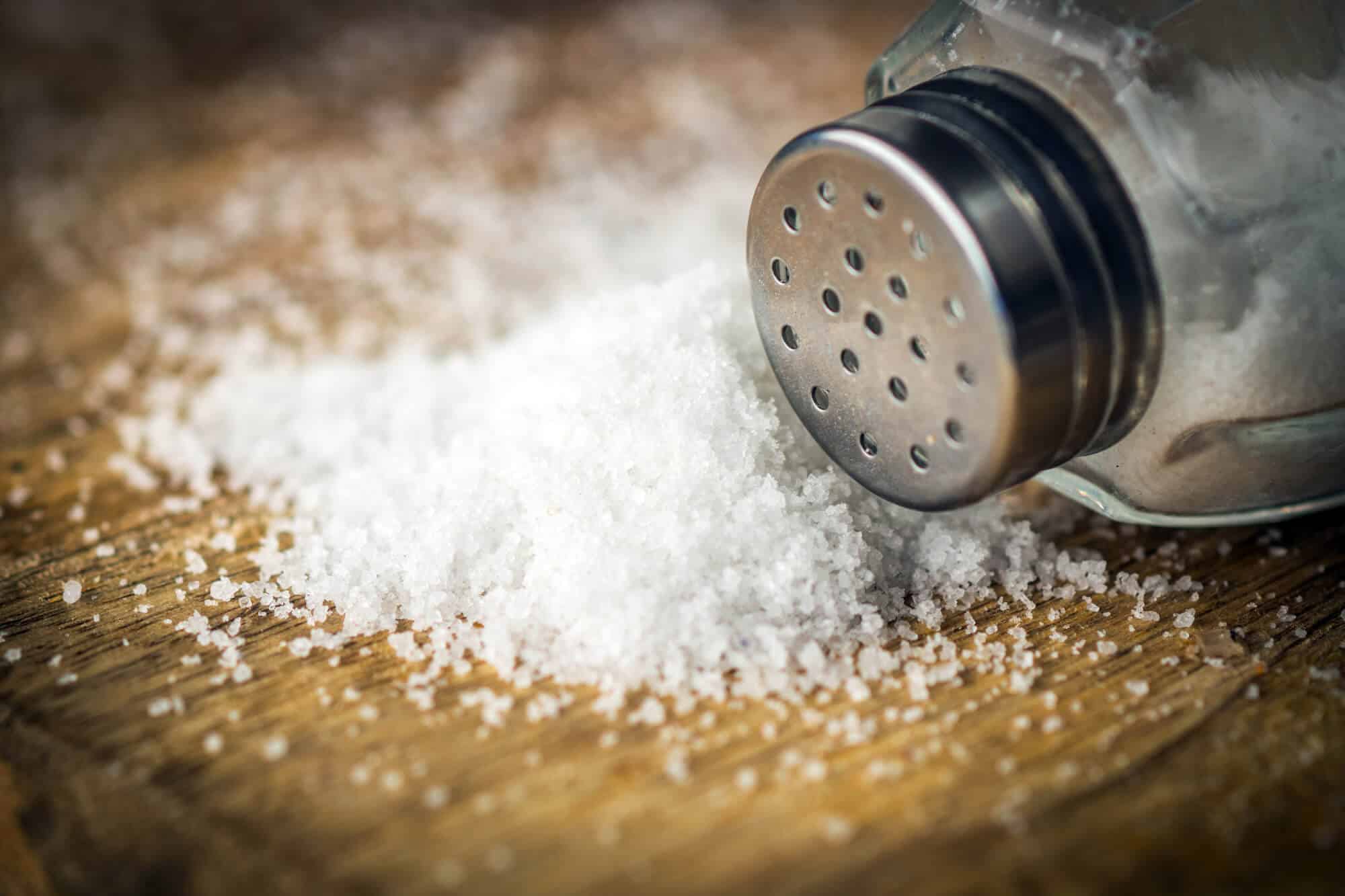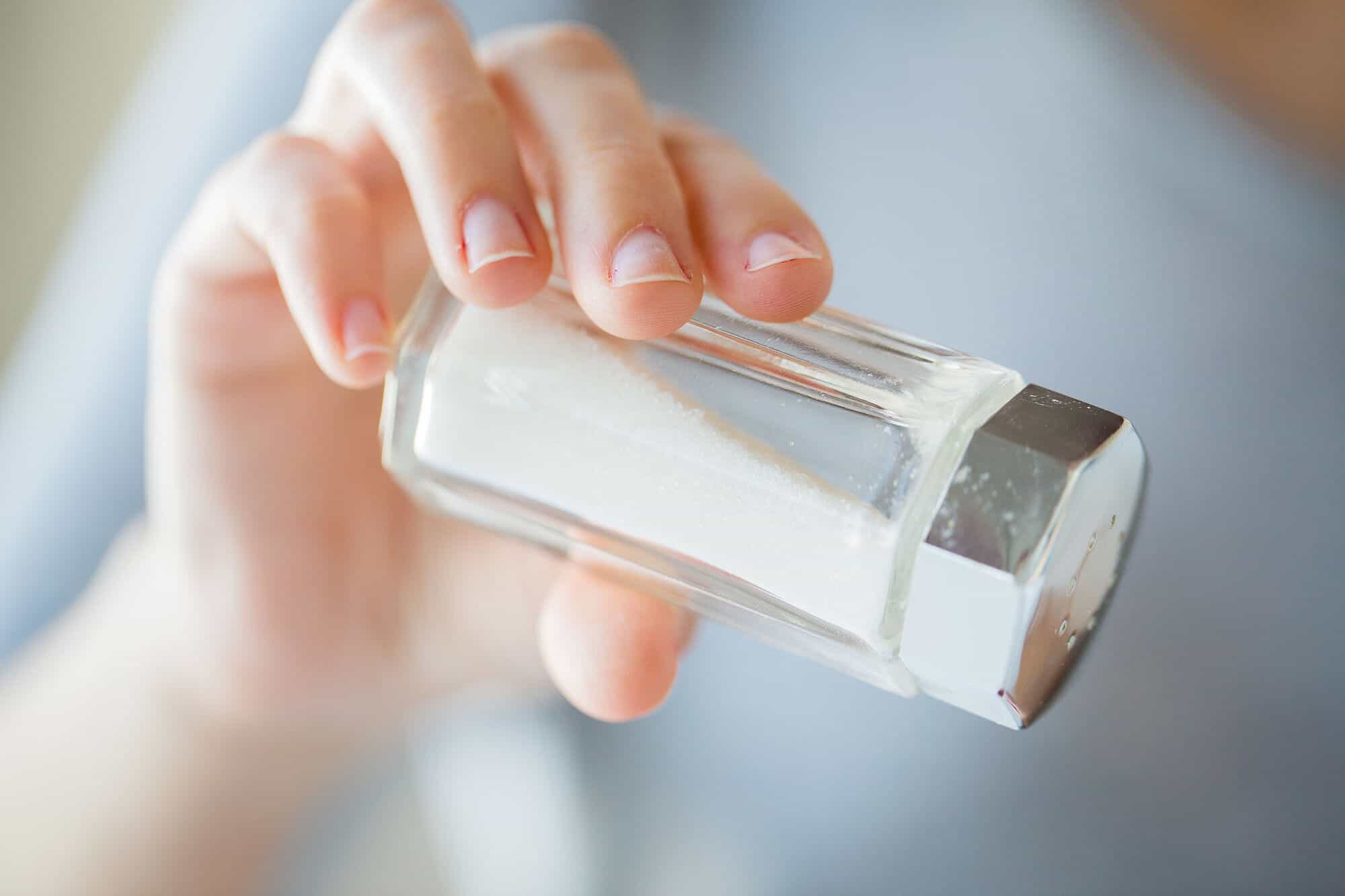There’s nothing worse than eating bland food, especially when you know that all you need is a pinch of salt. As a runner, you know that you should limit your salt intake. Still, you need salt in your diet to stay healthy.
If you consume the correct amount of salt a day, it can improve your performance during a race. The question is how much salt before a half marathon?
So, let’s take a look at the effects of salt and how much of it you should be eating.
The Importance of Nutrition Before a Half Marathon

One of the most important aspects of training for a race is nutrition. You need to follow a healthy diet that includes all the main food groups. This ensures your body has enough fuel to carry you to the finish line.
Still, you need nutrients for a lot more than fuel. Some nutrients can help maintain the electrolyte balance in your system.
After an intense training session, you sweat out more than just water. Your sweat consists of water with a few other minerals mixed in. These minerals can include potassium, calcium, and sodium. That’s why your sweat is a little salty.
Sodium is the most abundant mineral in sweat. That means when you sweat, you lose a lot of sodium. In order to replace the sodium, you need salt.
How Much Salt Before a Half Marathon Do You Need
Other than making food taste delicious, salt is also our main source of mineral sodium. We need sodium in our diet for many reasons.
Since we use up our sodium reserves pretty quickly, we need to replace them often.
Daily Salt Intake
Our daily sodium intake should be around 2,300 to 2,500 mg. This converts to about 6g or about one and a half teaspoons of salt. However, many of us don’t stick to that range.
You only need a tiny amount of salt a day to function. Moreover, if you go above the recommended intake, it can lead to negative side effects.
For this reason, you need to keep an eye on how much salt before half marathon you’re eating. This is even more important before a race.
Salt Intake Before a Half Marathon
Running uses up your sodium reserves much faster. Still, this doesn’t mean you need to sodium-load before a half marathon.
As a general rule, you don’t need more sodium before you go for a long run. If you consume the same amount of salt you do every day, your body should have no problem keeping up during the race.
It’s crucial that you stick to about 2,400 mg of sodium during the days leading up to the race. Doing this can help you significantly boost your performance in the half marathon.
However, this number can change depending on a few factors.
Factors That Affect Salt Intake
Every person has different needs when it comes to salt. Depending on a few factors, your daily salt intake can change.
Your Age
Our bodies go through many changes as we age. Unfortunately, one of these changes is that your kidneys don’t work as well. Your kidneys are responsible for filtering out waste materials. This means the kidneys can’t handle as much salt.
The recommended sodium intake for people between the age of 18 and 30 is about 2,400 mg. As for people between 30 and 50, the intake drops to about 1,500 to 2,000 mg.
How Much You Sweat
Since sodium is the main mineral in sweat, it should come as no surprise that sweat affects salt intake.
Depending on how much you sweat, you need to adjust your salt intake. The average person sweats about 0.8 to 1 liter per hour during exercise. You lose about 500 mg of salt for every liter of sweat you produce.
This may be a little different for everyone. In addition, measuring how much you sweat can be a little tricky. To find out exactly how much you’re sweating, check out this guide.
Overall Physical Condition
Another crucial factor when it comes to salt intake is your overall physical health. Sodium isn’t the only mineral you need to function properly.
There are many other minerals like calcium and potassium that help your body run. So, depending on the concentration of these minerals, your sodium needs may differ.
Moreover, there are a few medical conditions that affect how your body absorbs sodium. If you do have a condition, it may be a good idea to consult a doctor before you run a half marathon.
Why We Need Salt

Many people prefer to stay away from salt because it can cause high blood pressure. It can also lead to water retention and bloating. However, in moderation, salt can be incredibly good for you.
Salt is a chemical compound that consists of sodium and chlorine. When salt travels to your stomach, it breaks down into its components. Then you can absorb the sodium and start using it.
Sodium has a couple of functions inside the body:
Nerve Pulse Conduction
The main function is conducting nerve pulses. When sodium and chlorine break apart in your stomach, sodium’s left with a positive charge.
Your body can then use this charge to carry messages around. This allows your brain to send signals to your muscles to contract and relax.
For this reason, sodium is crucial for any high-intensity activities. Without it, your muscles may stiffen up and affect your performance.
Maintain Mineral Balance
If you take care of your body, it can run like a well-oiled machine. However, just like a machine, you need to balance every system.
The minerals in your body have to maintain a delicate balance to function. Without balance, your body can’t perform at its peak.
Sodium is a major player when it comes to maintaining this balance. So, not getting enough salt can have a huge impact on how well you run.
Benefits of Salt
Now that you know what salt does inside the body, let’s take a look at some of its benefits.
Keeps You Hydrated
Eating a teaspoon of salt can dry out your mouth. That’s why many of us associate sodium with dryness. However, that’s not the case.
Water likes to follow salt. Salt can absorb water as soon as it comes into contact with it. That’s why our mouths get dry.
Having sodium in your system will help regulate water in your system and keep you hydrated.
Protects Your Cardiovascular System
We all know that an excess of salt can lead to high blood pressure. However, small amounts of it can be beneficial to your cardiovascular system.
Sodium helps conduct pulses from the brain to muscles. One of the most important muscles in our body is the heart.
Eating certain types of salt can help you maintain a healthy heart rhythm. The best type of salt for your heart is sea salt.
Prevents Muscle Cramping

As a runner, you must be familiar with the shooting pain of a cramp. It comes out of nowhere and takes a while to go away.
A cramp can happen because of a few different reasons. It could be you overworked your muscles or you’re dehydrated.
However, the most common cause of cramps is an electrolyte imbalance. The usual culprits are sodium and magnesium. Keeping the proper balance of these minerals can save you a lot of pain.
Improves Sleep
A good night’s rest is key to the performance of any marathon runner. Getting enough sleep ensures that your body can relax and get ready for a new day.
Committing to running a half marathon can be stressful. You put your body through a lot of training to be able to run the race.
One of the drawbacks of this is not getting restful sleep. Sodium can help relieve some of the stress of training.
How Much Salt Before a Half Marathon: What Happens if You Eat Too Much Salt
Even though salt has many benefits, eating too much can have negative effects. Some of the negative effects of too much salt include:
- Dehydration
- High blood pressure
- Irritability
- General weakness
Instead of keeping you hydrated, too much salt can have the opposite effect. Too much salt will cause water retention and bloating. This will cause your blood vessels to contract and increase your blood pressure.
Excess salt can also alter your mood. Because of the water retention, you become much more irritable and moody.
Finally, the water retention can cause your joints to swell. This will make it much more difficult to move around.
How to Track Salt Intake
While salt is the largest source of sodium, it’s not the only one. There’s a small amount of sodium in all the food we eat. So, to control your salt intake, you have to watch everything you eat.
It can be tricky to calculate the amount of sodium in any given food item. Unless the packaging has sodium content, you’re in the dark. Even then, reading the packaging can be a little misleading.
For example, if a package says salt/sodium-free, it means there’s less than 5 mg of sodium. This means that even if the package says sodium free, you’re still consuming some.
So, to know the exact composition of what you’re eating, you have to prepare it yourself. Even if you have a busy schedule, it’s a good idea to cook all your meals starting a few days before the race.
Wrapping Up
Eating too much salt before a half marathon can negatively affect your performance. However, not getting enough salt will have the same effect.
So, how much salt before a half marathon? The answer to this question depends on a few factors, like age and overall physical condition.

